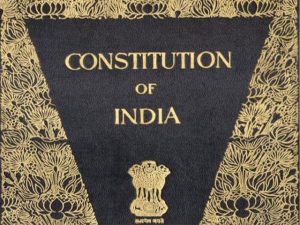Article 142:

In ordering the release of Rajiv Gandhi assassination case convict A G Perarivalan on May 18, the Supreme Court invoked the extraordinary power conferred on the court under Article 142 of the Constitution.
Article 142 of Constitution:
- Title: Enforcement of decrees, orders of Supreme Court and orders as to discovery, etc.
- This article has 2 provisions –
- 142(1): The Supreme Court may pass an order for doing complete justice.
- 142(2): It confers three different powers on the Supreme Court. They are:
- Securing the attendance of persons before it.
- Discovery and production of documents and
- Investigation and punishment of contempt of itself.
- About A-142(1): Doing Complete Justice
- The objective of Article 142(1) is that the Supreme Court must not be dependent on the executive for the enforcement of its decrees and orders.
- Such dependence would otherwise violate the principles of independence of the judiciary and separation of powers, both of which are part of the basic structure of the Constitution.
- In Supreme Court Bar Association v. Union of India (1998), it was decided that this article
- Cannot be used to over-ride the existing law, but only to supplement the law and
- Can be invoked for procedure purposes only.




